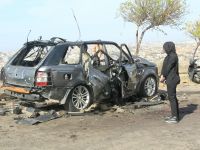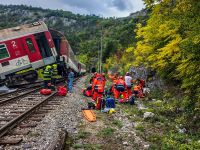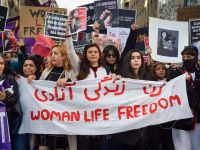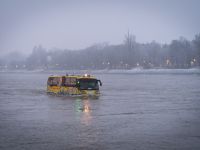Turkey expressed willingness Friday to host a summit between Israeli and Palestinian leaders, while the Israeli envoy to Turkey said Ankara was also contributing to efforts for the release of three Israeli soldiers captured by Hizbollah.
Turkish President Ahmet Necdet Sezer is "extremely saddened" by the escalation of violence in the Palestinian territories, presidential aide Tacan Ildem told a press conference.
He added that Sezer believed both Palestinian leader Yasser Arafat and Israeli Prime Minister Ehud Barak needed to "stop and not give in to provocation no matter how difficult it might be."
"Turkey is ready to bring every possible contribution for peace in the region. One should not exclude the possibility of hosting such a summit from among these contributions," he said when asked about suggestions for Turkey to host such a meeting.
The Israeli ambassador to Turkey, Uri Bar-Ner, meanwhile, said Ankara had made moves, upon an Israeli request, to help the release of three Israeli soldiers abducted by Hizbollah last Saturday.
"Turkey has taken some steps. It contacted some of the people who bear responsibility after we requested them to help," the ambassador told the all-news NTV channel.
However, Bar-Ner added that they had not received any response on the outcome of the Turkish efforts.
Ankara's action came in response to a recent letter from Israeli Prime Minister Ehud Barak to his Turkish counterpart Bulent Ecevit, asking for help over the kidnapped soldiers, an Israeli diplomat told AFP on condition of anonymity.
"Turkey is trying to help us in every channel, both for the soldiers and with the Palestinians," he said.
Turkish diplomats refused to comment on the issue.
The three soldiers were snatched by Hizbollah last Saturday in a raid into the disputed Shabaa Farms area on the Israeli-occupied Lebanese-Syrian border.
Predominantly Muslim Turkey has been Israel's main regional ally since 1996 when the two signed a military cooperation deal, but also maintains friendly ties with the Palestinians – ANKARA (AFP)
© 2000 Al Bawaba (www.albawaba.com)







